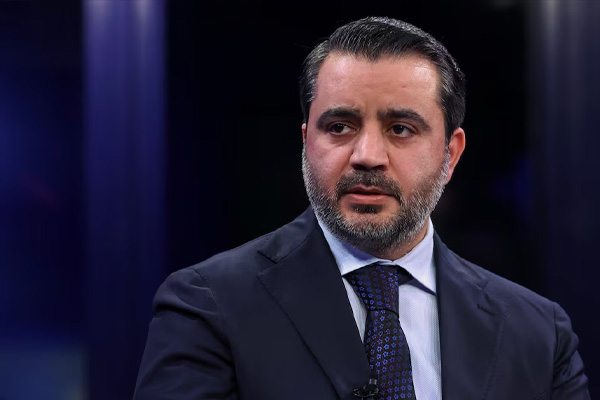Syria Joins EU Donor Conference for the First Time Amid Transition Efforts
International International NewsPosted by NewAdmin on 2025-03-17 08:36:28 |
Share: Facebook | Twitter | Whatsapp | Linkedin Visits: 38

The European Union is hosting a donor conference for Syria to support the country’s transition following the ousting of President Bashar Assad in December. This is the first time Syria will participate in such a conference, and its delegation will be led by Foreign Minister Asaad Hassan al-Shibani. The meeting brings together Western partners, regional neighbors, and UN agencies to discuss rebuilding Syria, which was left in ruins after nearly 14 years of civil war. The economic recovery is complicated by ongoing Western sanctions that were imposed during Assad's rule, and the interim government is hoping the conference will help legitimize its leadership and secure financial aid. The United Nations estimated in 2017 that rebuilding Syria would cost at least $250 billion, but current estimates suggest it could exceed $400 billion.
The situation in Syria remains unstable. Last week, clashes erupted when gunmen loyal to Assad ambushed a Syrian security patrol, leading to sectarian attacks that killed hundreds of civilians. The European Union has expressed concern over the security situation and insists that it will only support a peaceful and inclusive transition that respects Syria's sovereignty and the rights of all its people. The new leadership, headed by interim President Ahmad al-Sharaa, has signed a temporary constitution that will keep Syria under Islamist rule for five years during the transition period. While some Syrians welcome the end of Assad’s dictatorship, many religious and ethnic minorities are skeptical about the new government.
Syria’s economic crisis has left millions struggling with unreliable electricity, unsafe water, and an unemployment rate of up to 90 percent. Government institutions are in ruins, and many skilled workers fled during the war. The UN estimates that around seven million people are internally displaced, while more than 4.7 million Syrian refugees are living in neighboring countries. Since Assad’s fall, approximately 302,000 refugees have returned. The UN humanitarian chief, Tom Fletcher, remains optimistic, stating that it is now easier to operate in Syria than under the Assad regime. He highlighted improved cooperation with the interim government, particularly in maintaining open border crossings.
The EU has begun easing some sanctions in an attempt to encourage Syria’s new leadership but remains cautious. The donor conference aims to secure financial aid and support economic reconstruction, which requires stability. Infrastructure, healthcare, and education need urgent improvements, and job creation programs are essential for rebuilding Syria’s economy. However, if the situation deteriorates, the EU has the option to reimpose sanctions. The conference represents a critical step for Syria’s new leaders as they seek international recognition and financial support for rebuilding the country.
Search
Categories
Recent News
- Telangana's Cybercrime Conclave: AI Takes Centre Stage
- SEIL's Rs 20 Crore Hospital Project: A Milestone for Rural Healthcare
- India's Strategic Patience: Navigating US Trade Tensions
- Cyclone Ditwah: Andhra on High Alert as Storm Approaches
- Fiscal Focus: Navigating the Path to Economic Stability
- Asian Football Showdown: India Joins the Race to Host 2031 Asian Cup
- Hyderabad Firm's $5.2 Crore Fraud Unveiled
- Space Data Centers: Musk's Vision or Mission Impossible?
Popular News
- Navigating IPO Market Dynamics Amid Volatility and Regulatory Changes
- Massive Worldwide Microsoft Outage Disrupts Multiple Sectors
- Panjapur Bus Stand to Reshape TNSTC Routes
- తెలుగుదేశం పార్టీ - పేదరికాన్ని నిర్మూలించడంలో వాగ్దానం
- Universities Embrace Remote Learning Technologies Amidst Ongoing Pandemic